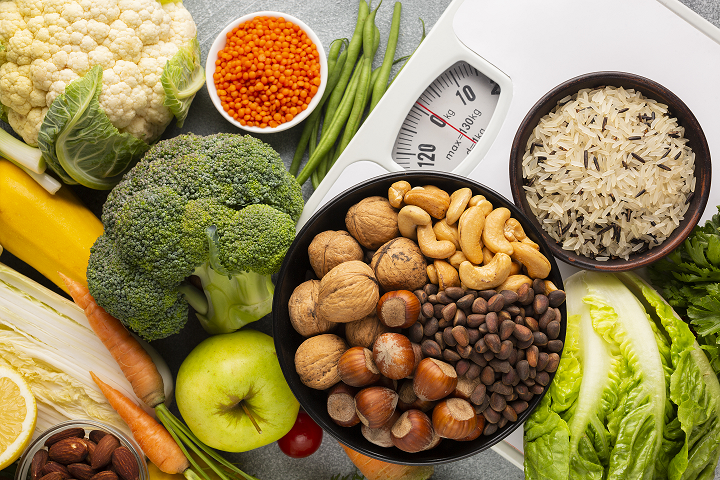Ayurvedic Principles for Improving Digestion
A healthy digestive system is essential for overall well-being. Proper digestion ensures that our bodies can effectively break down and absorb nutrients and also eliminates waste efficiently. However, many people experience digestive issues such as bloating, indigestion, and constipation. The good news is that there are natural remedies available to help improve digestion and promote digestive health.
In this blog, Arogyadham India has curated a comprehensive guide on natural ways to improve digestive health. By focusing on Ayurvedic principles and the power of herbal remedies, we will delve into various strategies to enhance digestion naturally. From dietary tips to lifestyle changes, we will provide valuable insights and practical solutions that can help you achieve optimal digestive well-being. Whether you’re dealing with occasional digestive discomfort or looking to maintain a healthy stomach, this blog will offer valuable information and guidance to support your digestive health journey. So, keep reading to discover effective remedies that can make a significant difference in your digestive well-being.

10 Ways To Improve Digestion Naturally
Good digestion allows us to efficiently absorb nutrients from the food we eat and eliminates waste products from our bodies. However, many factors can disrupt the digestive process, leading to discomfort and various digestive issues. Here are some best ayurvedic tips and treatments for digestive problems:
1. Eat Mindfully
Mindful eating is a practice that involves paying attention to the entire eating experience, from the taste and texture of food to the sensations in your body. By slowing down and savouring each bite, you can improve digestion by allowing your body to break down properly and absorb nutrients. You should avoid distractions during meals, chew your food thoroughly, and take the time to appreciate the flavours.
2. Stay Hydrated
Drinking an adequate amount of water is crucial for maintaining healthy Digestive. Water helps to soften stool and supports the smooth movement of waste through the digestive tract. Everyone should aim to drink at least 8-10 glasses of water per day and increase their intake if they are physically active or in hot weather.
3. Include Fiber-Rich Foods
Fiber is crucial for maintaining digestive health as it enhances stool bulk and supports regular bowel movements. To ensure a well-rounded intake, incorporate a range of fiber-rich foods into your diet, including fruits, vegetables, whole grains, legumes, and nuts. It’s advisable to gradually increase your fiber consumption to prevent any discomfort in the digestive system.

4. Probiotics For Stomach Health
Probiotics are beneficial bacteria that promote a healthy balance of belly flora. They help improve digestion by breaking down food, synthesizing vitamins, and preventing the growth of harmful bacteria. So, it is recommended to include probiotic-rich foods in your diet, such as yogurt, kefir, sauerkraut, and kimchi. You can also consider taking a high-quality probiotic supplement to support your gut health.
5. Manage Stress
The harmful effects of chronic stress on digestion can disrupt the normal functioning of the digestive system. To mitigate these impacts, it is essential to incorporate stress management techniques into your routine. By engaging in activities such as meditation, deep breathing exercises, and yoga, you can promote relaxation and effectively reduce stress levels.
Additionally, finding joy in activities you enjoy and ensuring sufficient sleep are vital components of stress management which are ultimately contributing to improved digestion. You can support a healthier digestive system and overall well-being by prioritizing stress reduction and adopting healthy coping mechanisms.
6. Herbal Remedies
Ayurveda, the ancient Indian medicinal system, provides a plethora of herbs and remedies that promote digestive well-being. Ginger, fennel, peppermint, and chamomile are frequently utilized herbs known for their beneficial effects on reducing bloating, indigestion, and stomach discomfort. These herbs can be consumed as teas, incorporated into meals, or taken in supplement form. By embracing Ayurvedic wisdom and incorporating these herbs for digestion into your routine, you can enhance your digestive health and alleviate common digestive issues. But always remember to seek professional guidance to ensure the safe and appropriate usage of these remedies.
7. Avoid Trigger Foods
In some individuals, certain foods can provoke poor digestion. It is important to be attentive to your body’s reactions to different foods and identify potential triggers. Spicy and fatty foods, processed snacks, carbonated drinks, and foods with high refined sugar content are commonly recognized as trigger foods. To alleviate digestive symptoms, it is recommended to limit or avoid these types of foods. By being mindful of your diet and making informed choices, you can support your digestive health and minimize discomfort associated with trigger foods.
8. Regular Physical Activity
Regular exercise promotes Digestive Health by stimulating the muscles in your digestive system and improving bowel regularity. So, engage in moderate-intensity exercises such as brisk walking, jogging, or cycling for at least 30 minutes most days of the week. You can find activities that you enjoy and make them a part of your daily routine to improve your digestion.
9. Herbal Teas For Digestion
Herbal teas have long been recognized for their ability to provide soothing relief for digestive discomfort and support healthy digestion. Peppermint tea, in particular, is renowned for its calming effect on the stomach. It contains compounds that can help alleviate symptoms of indigestion, such as bloating, gas, and stomach cramps. Peppermint tea works by relaxing the muscles in the gastrointestinal tract, allowing for smoother digestion.

Another widely enjoyed option is chamomile tea, which not only aids in digestion but also promotes relaxation. Chamomile has anti-inflammatory properties that can help ease the digestive system and relieve gastrointestinal distress. It is often used to alleviate symptoms of acid reflux, stomachaches, and nausea.
To experience the benefits, sip on these herbal teas after meals or whenever you experience digestive discomfort. As you enjoy the warmth and aroma, the herbal intake can help relieve and relax your digestive system, providing relief and supporting Digestive Health.
10. Practice Portion Control
Overeating can strain your digestive system and cause discomfort. To promote Digestive Health, practice portion control by listening to your body’s hunger and fullness signals. You can opt for smaller and more frequent meals instead of large ones. So, be mindful of the portion of your meal and avoid rushing through meals. This will allow your body to take sufficient time to digest food effectively. By adopting these habits, you can support your digestive system and prevent the discomfort associated with overeating.
Reads more : Ayurvedic Herbs For Healthy Life
Conclusion
By incorporating these natural strategies into your lifestyle, you can improve digestion and promote a Digestive Health system. It’s important to remember that each person’s digestive system is unique, so finding the most effective approaches may require some trial and error. If you experience persistent digestive issues, consulting with a healthcare professional is advisable.
In conclusion, maintaining digestive health is vital for overall well-being and vitality. Practices like Shank Prakshalana can help cleanse the digestive tract and enhance the body’s natural agni or digestive fire. By incorporating Ayurvedic principles, such as a balanced diet and mindful eating, you can support your digestive system.
For expert recommendations on digestion and Ayurvedic remedies for digestive health, you can seek guidance from our esteemed Ayurvedic doctors in Rishikesh, India. Arogyadham In’s specialists can provide personalized ayurvedic treatment for digestion that is tailored to your specific needs.



